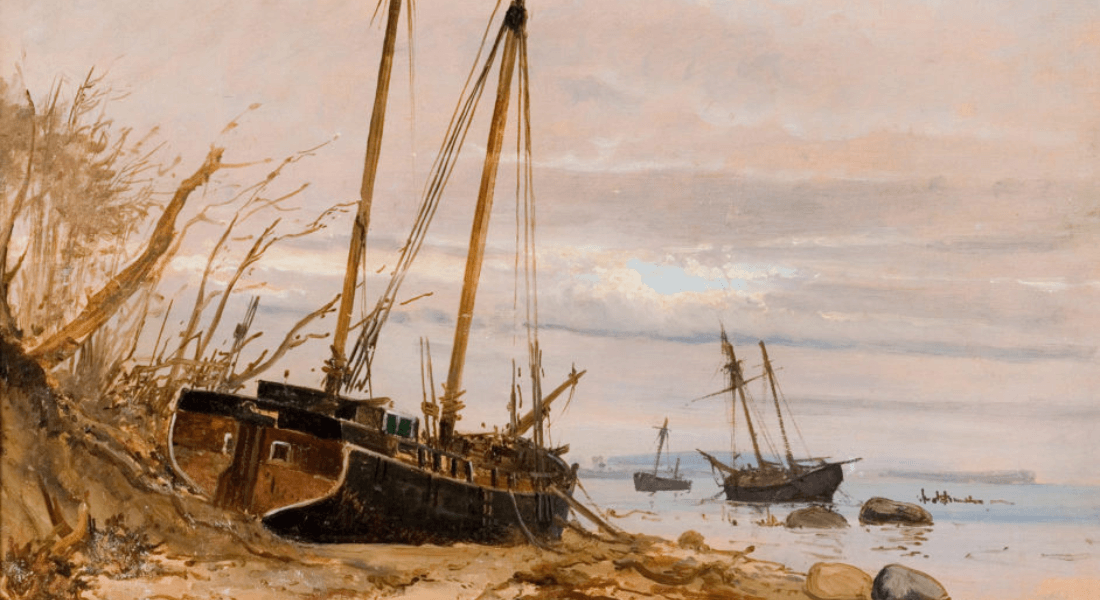The Coastal Anthropocene (CoAnt) – Literary Visions of Past and Future Shorelines
Shorelines are the frontlines of climate change. CoAnt investigates how writers depict and imagine human habitation with coasts. We expect the literary archive to unveil valuable knowledge of coastal practices of adaptation and mitigation that will serve us well as we face a wetter and bluer future.

|
Painting: Fra stormfloden 1872. Falster. Holger Drachmann, 1872. |
In CoAnt, we analyze coastal literature from around 1800 until today, literature from the Global North and the Global South. We focus on historical representations and speculative imaginaries of coastal existence. A primary objective is to examine how writers have portrayed the relationship between humans and their natural environment, their animal kin, and their worlds of objects and things.
We consider the coast an intensified contact zone where not only cultures and languages meet, interact, and collide, but also a zone in which the distinctions between human and geological history, human and non-human, and nature and culture are challenged or even collapsed. Human history is traditionally a terrestrial history, but CoAnt recasts it as an amphibian story of land-sea entanglements.
- How have we practiced and imagined coastal existence in the past?
- What do coastal imaginaries of the future look like?
Sub-project 1: Litteratur – Kyst – Antropocæn (Danish book project).
Søren Frank, project leader and principal investigator.
Sub-project 2: Littoral Pasts and Futures: The Representation of Sea Level Rise, Oceanic Catastrophes and Climate Change in Select Climate Fiction (PhD dissertation).
Tanushree Ghosh, PhD fellow.
Researchers
| Name | Title | Phone | |
|---|---|---|---|
| Søren Frank | Professor | +4535322167 | |
| Tanushree Ghosh | PhD Fellow | +4535336516 |
External researchers
| Navn | Titel | Telefon | |
|---|---|---|---|
| Karl Emil Rosenbæk | Postdoc | 65503722 |
Funding
Independent Research Fund Denmark
Project period: 1 January 2024 – 31 December 2026,
PI: Professor Søren Frank
